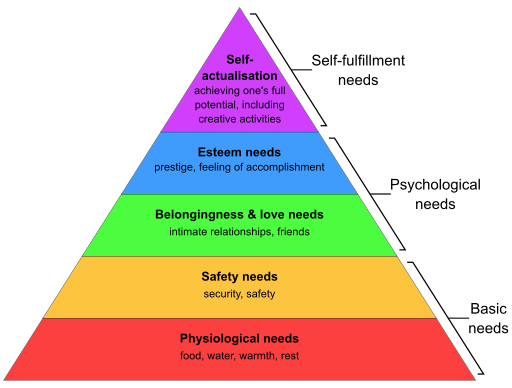According to psychology, there are ten categories of persons who should never be given another chance

News Mania / Piyal Chatterjee / 20th October 2024
Everyone is entitled to a second opportunity, according to popular belief. But psychology says that’s not always the case. There are some persons you should avoid giving another chance to for the sake of your own mental health. These are the people who have demonstrated via their acts and behaviors that they are unlikely to change. In this post, we’ll examine the ten categories of people that psychological science suggests you should reconsider before extending a second opportunity to.
1) The persistent manipulator
Certain people are chronic manipulators, according to psychology. They are adept at leveraging guilt, distorting facts, and twisting language to achieve their goals. People like that don’t play fairly. They all prioritize their own interests, even if it means hurting other people. Re-entering a web of lies and emotional suffering could result from giving a habitual manipulator another chance. These people are unlikely to change because they have frequently shown a pattern of manipulation.
It’s not about harboring resentment. It’s about safeguarding your integrity and emotional well-being. Pay attention to the warning indicators and think twice before giving someone another chance if they have demonstrated that they are a habitual manipulator.
2) The persistent liar
Everyone has come across people who don’t really care about the truth. Lying seems to come naturally to certain people, and they are unable to break the practice. According to psychology, habitual liars frequently tell lies out of convenience or impulsiveness rather than always with malicious intent. But whatever their motivations, their lies have the power to seriously upset and perplex others around them. It’s usually advisable to avoid giving someone another chance when they are a chronic liar.
- The sentimental vampire
Emotional vampires, also known as energy vampires, are people that seem to drain the joy and vitality from every encounter. They make those around them feel exhausted because they feed on drama and negativity. In fact, interacting with negative people can make you feel more stressed and weaker. This implies that being with emotional vampires can have a real effect on your health rather than just making you feel down.
4) The unending victim
It’s always someone else’s fault, you know the kind. They always place the blame for their misfortunes on others and never accept accountability for their conduct. This is the victim who never dies. According to psychology, those who constantly see themselves as victims frequently have a victim mentality that is profoundly embedded. This mindset impedes personal development and keeps individuals from admitting their part in their issues.

5) The unrepentant transgressor
Although everyone makes mistakes, most people experience remorse or guilt after realizing they have harmed someone. Some people, nevertheless, don’t seem to have this fundamental empathy. They invariably cause harm to others and never exhibit sincere regret.According to psychology, a defining characteristic of some personality disorders is the inability to experience or express regret. These people may find it extremely difficult to change their damaging actions as a result of their lack of empathy. It’s dangerous to give a wrongdoer who doesn’t apologize another chance. They are likely to repeat their behaviors and even do more harm if they lack the capacity for true remorse. Before choosing to give them another chance, it’s crucial to take this into account.
6) The recurring heartbreaker
The thing of love is lovely. It has the capacity to inspire, uplift, and heal. However, it can also be used as a weapon if it is handled improperly. The serial heartbreaker comes next.These are the people that constantly manipulate the feelings of other people. They leave a trail of broken hearts in their wake and make promises they never intend to keep.
According to psychology, repeated heartbreakers frequently lack emotional maturity and find it difficult to build lasting relationships. They leave devastation in their wake as they jump from one relationship to another.It can be like going into a minefield with your heart on your sleeve when you give a chronic heartbreaker another chance. It’s a risk that can cause you even more pain.
7) The unrelenting critic
Growth involves constructive criticism, which enables us to recognize and address our shortcomings. But constructive criticism and persistent, unyielding negativity are two different things.Constant critics, according to psychology, frequently battle their own fears and transfer them onto other people. Their critique is more about how they see themselves than it is about you. It can be detrimental to your self-esteem to give someone who is always critical another chance. It’s critical to surround yourself with positive people rather than negative ones.
8) The buddy of fair weather
People who appear to support you during good times can occasionally vanish during difficult ones. The fair-weather pals are these. These people may appear to be less dangerous than some of the other categories we’ve covered. They aren’t actively harming anyone, after all. However, intermittent support can be just as harmful as continuous hostility, according to psychology. Feelings of instability and insecurity can result from having a friend who supports you one day then disappears the next. When someone’s support is contingent on your situation, it can be difficult to trust them.
9) The self-absorbed person
For some people, selfishness is a way of life, yet we all have moments of it. Everybody else is merely a supporting role in their own drama, and they are always the protagonist. Self-centered people frequently find it difficult to empathize with others, according to psychology. They frequently ignore or minimize the needs of others around them because they are so preoccupied with their own needs and desires. Continuing to put the ego of a self-centered person first can result from giving them another chance. It’s critical to keep in mind that your needs and feelings are equally significant and should be respected.
10) The unending betrayer of promises
The foundation of trust is based on promises. Rebuilding trust is nearly tough when someone consistently betrays their commitments.Perpetual promise breakers frequently trouble with commitment and dependability, according to psychology. They could have the best of intentions when they make promises, but they don’t always follow through. Giving someone who consistently breaks commitments another chance could lead to further broken promises. In each relationship, trust is essential; without it, the basis breaks down. Retain your confidence and reconsider giving this individual another chance.
One important thing to keep in mind is that this choice is about protecting yourself, not about punishing the other person. We learn from psychology that behaviors are frequently patterns rather than one-off events. It’s critical to protect oneself from potential danger in the future if someone has demonstrated by their behaviors that they are capable of harming you. It is true that words are not as powerful as actions. Make wise choices regarding second chances by using these insights, but never forget to put your health first. Keep in mind that it’s about letting go of the possibility of experiencing heartache again, not about harboring animosity. Sometimes the most self-loving thing you can do is to not give it another chance.






